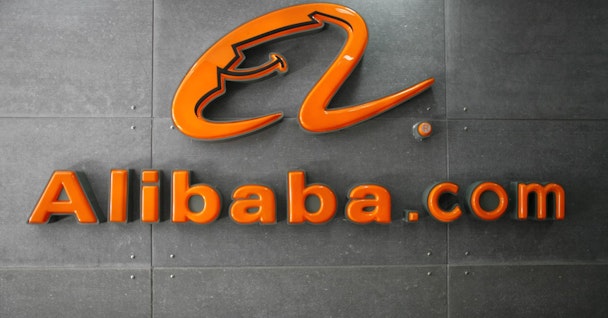Alibaba is using AI to create tailor-made shopping experiences
Alibaba is using artificial intelligence (AI) to create tailor-made shopping experiences for consumers and targeted marketing for brands as it seeks to “empower people in the virtual economy”.

Alibaba's principal engineer Rong Jin shares the ecommerce giant's AI ambitions
Alibaba’s principal engineer Rong Jin, told The Drum, that Alibaba is using AI technology within Taobao and Tmall through features such as smart product search and recommendation, customer-service chat-bots and image matching, which enables users to take a photo of a product and search for similar looking items.
“AI plays a crucial role in delivering the best customer experience across a wide spectrum of our services inside the Alibaba ecosystem,” said Jin. “Besides leveraging the AI technology to support our platforms, we are also starting to transfer AI services to empower more and more businesses.
“We believe that as mobile commerce becomes the trend, an increasing amount of data will be available online. We can then develop smart business intelligence through data analysis, which will then help better predict demand and optimise the entire supply chain system.”
Jin, who leads Alibaba’s AI development, said the team was also working on developments in cutting-edge technologies, such as speech recognition and interaction, visual analysis of videos and 3D modeling of shopping items.
“Data-driven technologies, such as AI and VR, will play a key role in advancing the company’s business forward and creating tremendous values to our customers, merchants and the larger society as a whole.”
Jin said AI technology will transform Alibaba’s business in the future by enabling the company to connect the data generated across the company’s ecosystem to better understand its consumers and better optimise the shopping process for them.
AI technology will also enable Alibaba to enhance product recommendations and help identify the most effective stages of the process to target consumers to influence their final purchasing decisions.
Alibaba this week launched its Uni Marketing framework, a collection of data tools which enable brands to control brand marketing across the entire Alibaba ecosystem.
Jin said this sort of data analysis and data pattern mapping will also help inform data models that Alibaba can apply to other sectors, beyond ecommerce. Alibaba has begun using AI technology to upgrade business sectors such as finance, shipping, healthcare and entertainment.
Alibaba’s cloud computing business, Alibaba Cloud, has developed a number of initiatives to help China’s healthcare industry, including the development of AI-based tumor diagnosis and data-driven production systems.
“The advancement of our AI technology is supported by two of our key strengths, data and cloud computing. Each day we collect large amounts of valuable data generated through Alibaba’s platforms that can feed into our system for data mining. Our high-performing, large-scale cloud computing infrastructure gives us the capability to process such data in huge scale,” said Jin.
“AI is a cornerstone technology that we have been focusing on, along with other impactful technologies such as big data and cloud computing, as well as IoT.”
“It is our hope that machines should help humans do things that otherwise couldn’t be done, and they should serve as assistants to humans, rather than robbing them of human pleasure or becoming rivals,” said Jin.
While it is still early days for AI technology, Alibaba has made no secret of its ambitions in the space. However, Alibaba faces competition from its rival Chinese internet companies Baidu and Tencent, both of which are investing heavily in AI.
Baidu, which is in the process of becoming an AI-first company, this year announced a major breakthrough in technology development after successfully teaching a virtual agent to learn a language from scratch. The move is viewed as a significant step towards teaching machines to learn like humans.
Last month, Tencent announced it would open a second AI lab, basing its new centre in Seattle, as the firm steps up its research into AI, machine learning and deep learning.

